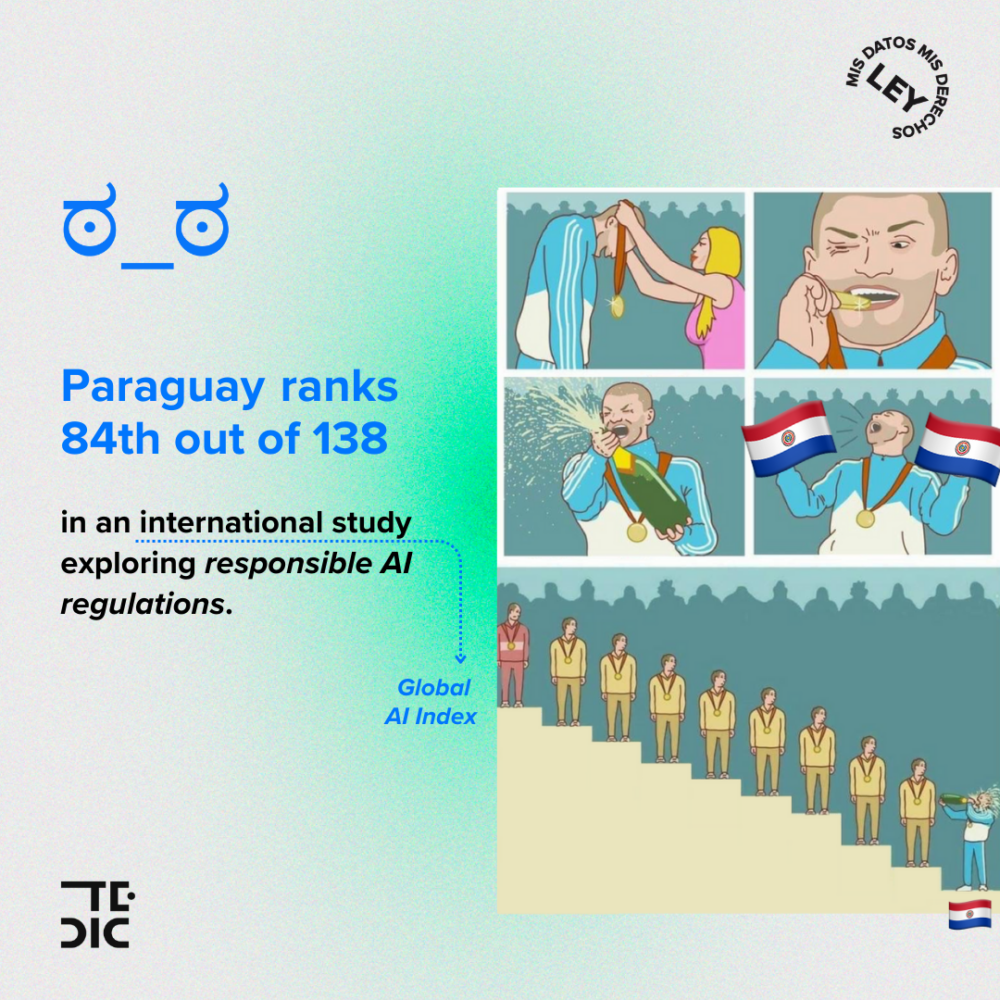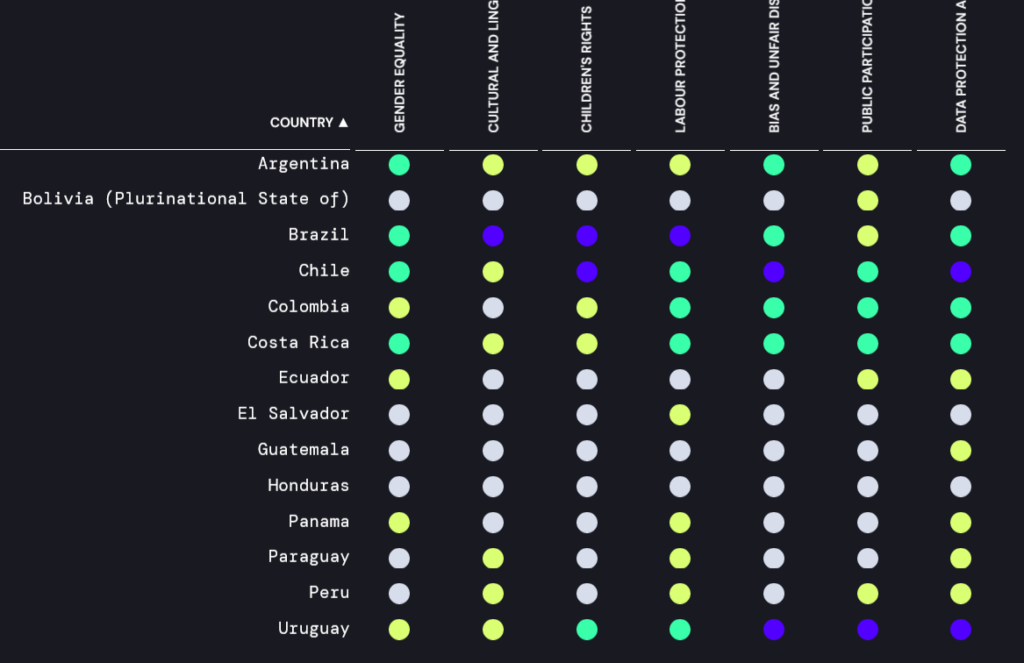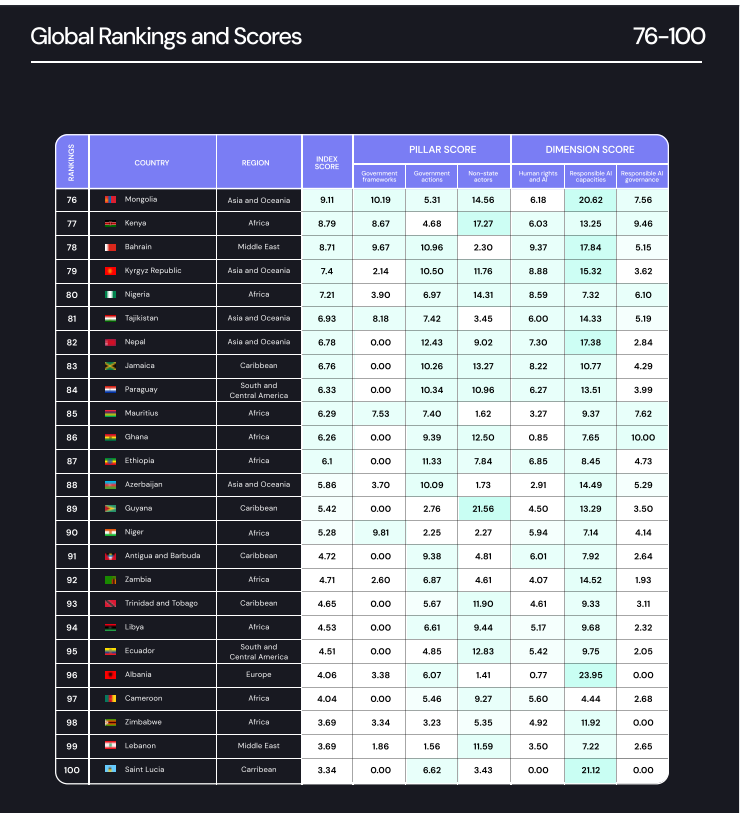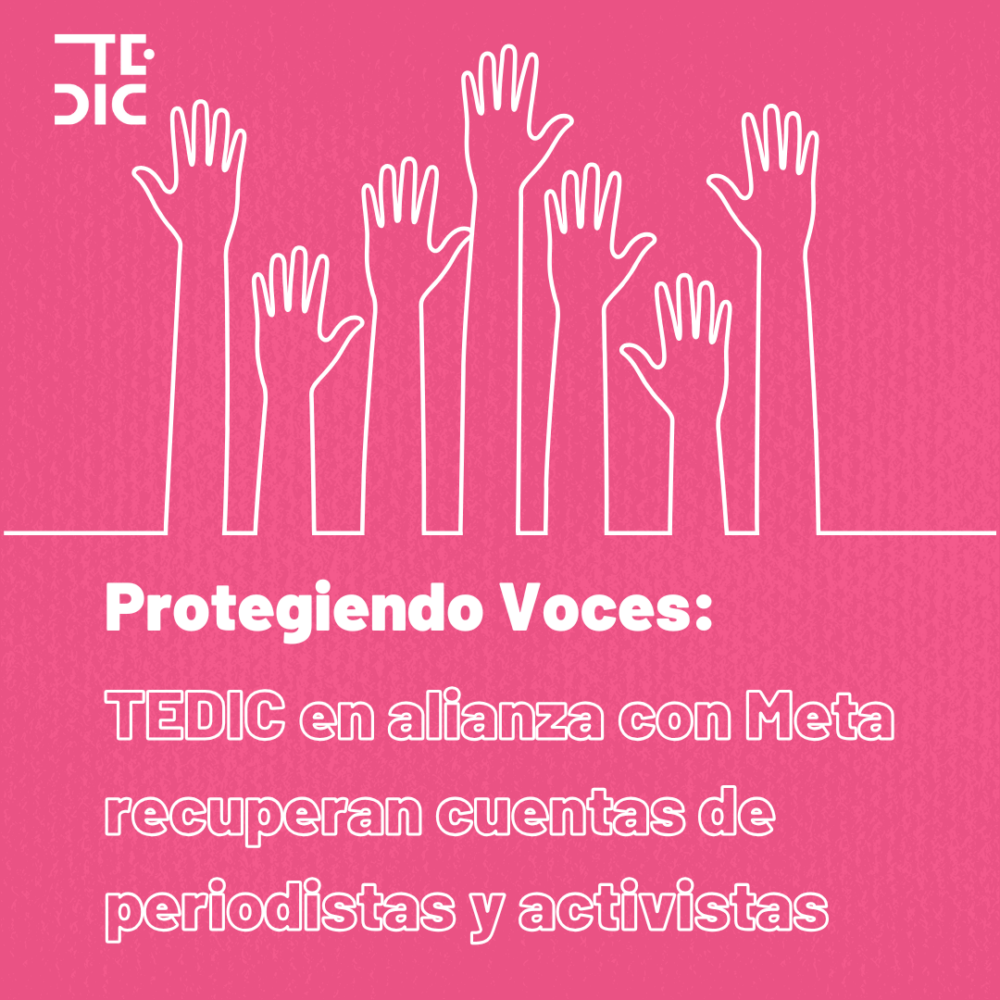
The Global Index on Responsible Artificial Intelligence is an initiative that evaluates and compares AI regulations across different countries. Its goal is to identify best practices and areas for improvement in AI governance, promoting robust regulations and equitable approaches to ensure the responsible development and use of AI worldwide. In Latin America, the index was coordinated by the Latin American Open Data Initiative (ILDA). The Paraguayan chapter of the Global Index on Responsible AI was managed by TEDIC, under the coordination of Maricarmen Sequera and the assistance of Antonia Bogado. This analysis provides a perspective on the current state of Internet governance regulations and their future challenges in our country. Additionally, it underscores the importance of adopting responsible measures in the AI field, especially in our national context, to ensure that technological development benefits society in a fair and safe manner.
Key Findings of the Global Index on Responsible AI
Among the findings of the Index, several critical points are highlighted, three of which are particularly revealing:
- AI Governance Does Not Necessarily Translate to Responsible AI: Although 39% of the evaluated countries have national AI strategies, most lack principles of responsible AI. This means that AI governance remains more of an idea than a practice, failing to ensure the ethical and responsible implementation of these technologies.
- International Cooperation as the Cornerstone of Responsible AI: UNESCO’s efforts have been fundamental in developing capacities for responsible AI at the national level. Many countries adopted UNESCO’s recommendation on AI Ethics and committed to its implementation tools, highlighting the importance of multilateral collaboration.
- Critical Gender Equality Gap in AI: Despite growing awareness of the need for gender equality in AI, few countries have made significant progress to ensure that women and historically vulnerable identities are not negatively affected by these technologies. Only 24 of the evaluated countries have regulatory frameworks addressing this issue.
The Context of Latin America and Paraguay
In Latin America, efforts exist to establish specific regulatory frameworks for AI and promote cross-sector collaboration. However, there is still a long way to go. The region recognizes the importance of addressing the ethical challenges of this technology and its impact on human rights, emphasizing the need to strengthen regional coordination and foster equitable and responsible regulatory approaches.

For Paraguay, the challenge is even greater. Of the 138 countries analyzed, Paraguay ranks 84th, with a score of 6.33 out of 100. Among the numerous negative points, the absence of a data protection law places the country in an unfavorable position, resulting in a score of 0 in the governmental frameworks component. Although there are isolated initiatives in the private sector at the national level, the lack of a cohesive legal framework and organized institutional policies among state entities limits progress in AI governance.
Towards Responsible AI Policy in Paraguay
In Paraguay, the path towards responsible AI is challenging but necessary. This will be positive as long as the State is willing to work with the support of organized civil society, academia, the private sector, and the technical community. Only then can the country advance towards AI governance that promotes well-being and justice for all people. The great challenge for Paraguay is to design and implement a policy that meets human rights standards. To achieve this, the first major step would be to enact the comprehensive data protection law that has been pending in the National Congress since 2021. Furthermore, the State must ensure the real fulfillment of human rights under the principles of “Responsible AI Governance”. This policy must be comprehensive, binding, and based on solid ethical principles to ensure that AI is developed and used in a way that benefits the entire society.


 Defending those who defend us
Defending those who defend us